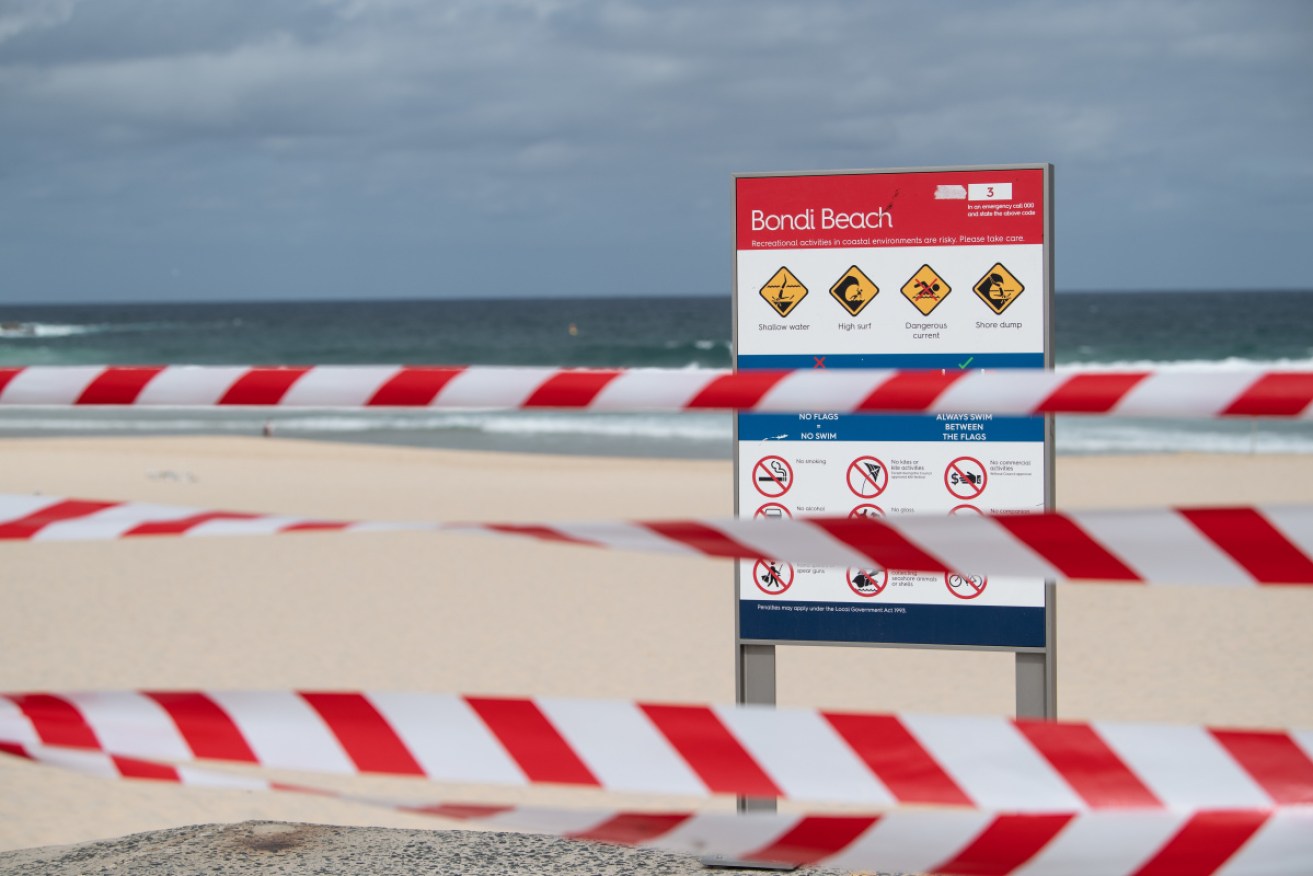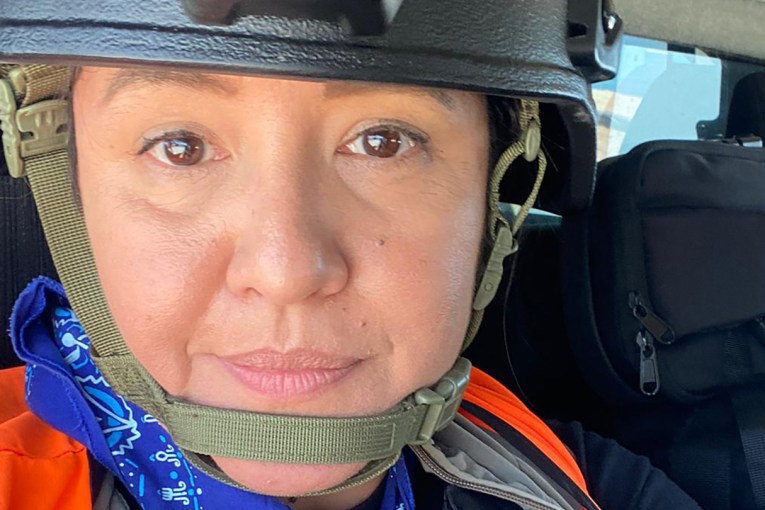The world cracks down on people flouting social distancing measures

Bondi Beach will be open to groups of up to ten. Photo: AAP
Authorities around the world are ramping up restrictions on people in public places amid concerns that vital social distancing measures to curb coronavirus are being ignored.
As the NSW government forced the closure of Bondi Beach on Saturday following outrage over throngs frolicking on the sand, French leaders invoked night curfews and Italian cities closed parks.
In Asia, Singapore wioll prohibit all short-term visitors to transit or enter the city-state in its latest measures to fight the spread of the coronavirus and to conserve healthcare resources for its own citizens.
The ban takes effect at midnight on Monday, local time.
The city-state reported its first fatalities from the virus on Saturday and has confirmed 432 cases of the infection. Almost 80 per cent of its new cases over the past three days were imported.
In Jordan, more than 220 people were arrested for violating a country-wide curfew, an offence punishable by a year in prison and an unspecified fine without a trial.
Closures of pubs, eateries and cinemas in the UK came after people ignored pleas to stay at home and continued to congregate at their favourite haunts.
As health experts stress the importance of social distancing to halt the spread of the virus, restrictions are being tightened globally to prevent people defiantly flocking to popular landmarks and gathering points.

Soldiers from the Jordanian army patrol atop a military vehicle on a street in capital Amman during a nationawide curfew. Photo: Getty
A spokesman for Jordan’s General Security Department vowed zero tolerance in enforcing the curfew which came into effect Saturday and urged people to stay at home and await specific times and procedures to buy basic necessities.
In case of medical emergencies, Jordanian people are asked to call the civil defence authorities rather than head to a hospital.
The armed forces have been deployed at entrances and exits of cities, public and private institutions have been shut down and all flights to and from Jordan have been halted.
Jordan, which has reported 69 confirmed coronavirus cases, declared a state of emergency on Tuesday as part of a series of measures aimed at preventing further spread of the virus.

France is stepping up restrictions on people in public, especially near popular landmarks such as the Eiffel Tower.
In France, restrictions on leaving the house are about to get tougher as the country responds to residents’ continued outside movement.
The Mediterranean city of Nice will lay down a complete ban on outside movement during night-time following similar moves by Vallauris and Menton.
Movement restrictions have also been tightened in Paris, where there will be more checks at train stations and the banks of the Seine River will be put off limits.
The lawns of the Esplanade des Invalides and the Champ-de-Mars – the site of the Eiffel Tower – are also restricted to passers-by.
Bondi outrage
Several NSW beaches will remain closed on Sunday after images of hundreds of people sunbaking at Bondi attracted world headlines and forced the temporary closure of the iconic beach.
The closed beaches include those in Bondi, Tamarama, Maroubra and Coogee.
Lake Macquarie City Council, south of Newcastle, has also announced the Sunday closure of its patrolled beaches.
Federal Health Minister Greg Hunt on Saturday hit out at beachgoers for ignoring new rules on social distancing measures aimed to stop the virus spreading.
“If you are breaking these rules you are putting, not just yourself, but you are putting other Australians at risk,” he said.
Lifesavers have been given unprecedented move-on powers amid the coronavirus pandemic.

Bondi Beach was heaving with people for days before its closure.
- Related: Government reveals new social distancing measures
- Related: Social distancing and staying healthy
Victoria’s Chief Health Officer Brett Sutton said further new measures may have to be invoked as it also emerged infected people were flouting quarantine rules.
Dr Sutton said he had heard of people leaving home isolation during their 14-day quarantine, and from newly-confirmed cases that they’d had close contact with people while they’re unwell.
“Everyone who has been told they’re in quarantine, must do so,” he said.
“If the trajectory continues regardless of the new travel restrictions, we will have to consider new measures.”
Dr Sutton wouldn’t speculate on what those restrictions might be, but said there are further steps available to authorities.
“We want to be able to take them when we can change the trajectory rather than at a point where we’re in the midst of a crisis, like Italy or the US,”
“If you care about the people around you, if you think about protecting your family, your parents, your grandparents … then you have to think about making that distance between you and other people in all settings at all times,” he said.
There are also concerns about young people not taking quarantine seriously enough.
-with AAP








